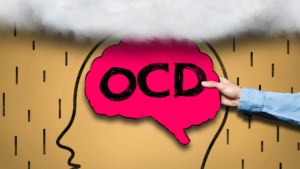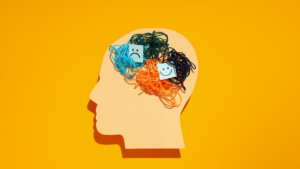
Therapy can be a tough sell. For many people, the idea of a one-on-one meeting with a stranger is terrifying. They worry that their therapist will judge them or that they’ll think that they’re crazy.
But therapy is a reasonable and viable solution to many mental health challenges, especially if you’re struggling with anxiety or depression. Additionally, there are many other methods, such as breathing exercises, physical activity, cannabis products (from canadacannabisdispensary or similar dispensaries), and reading a good book, that can be helpful in dealing with stress, anxiety, and depression. Among all the options, therapy remains the most preferred method for many people.
How is therapy helpful for mental health?
Therapy isn’t only for individuals who have been in the hospital for severe mental health issues like schizophrenia. It offers substantial benefits for those with milder conditions. It’s particularly effective because it can alter thought patterns and reactions. In today’s landscape, there are different kinds of therapies accessible, including neurofeedback, cognitive-behavioral, psychodynamic, and dialectical behavior therapy. These therapies can be customized to suit an individual’s specific needs, equipping them with valuable skills to manage their mental health and lead a more balanced life.
Therapy Sessions
Therapy sessions can be intimidating, whether you’re there for your first therapy session or for the tenth. And if you don’t have the right kind of session, it can be even scarier. But, with the right therapist and the appropriate environment, therapy can be a safe, welcoming space for healing. Another option for therapy that may be less intimidating is online mindfulness therapy. Mindfulness-Based Cognitive Therapy (MBCT) is considered to be a type of psychotherapy combining cognitive therapy, meditation, and cultivating a present-oriented, non-judgemental attitude known as mindfulness. When dealing with anxiety, mindfulness-based therapies can be considered as part of the treatment plan. This type of therapy can provide a convenient and comfortable way to access mental health support from the comfort of your own home. With online therapy, you can connect with a licensed therapist through a secure internet platform. This can eliminate the need to travel to a physical therapy location and can be especially beneficial for those who find the thought of in-person therapy sessions intimidating.
Does Psychotherapy Work?
Psychotherapy and counseling have been around for a long time, but in recent years the term has become somewhat of a dirty word. This is because of misconceptions and misinformation about what psychotherapy is and how effective it is. The goal of psychotherapy is to help you develop healthy coping skills that will enable you to face life’s challenges in a more productive way. It can help treat a variety of issues, such as depression, eating disorders, anxiety, and trauma. During psychotherapy, a trained therapist will help you learn new ways to deal with the emotional and psychological issues that drive your behavior. It is effective for both adults and adolescents, and today more than ever, it is accepted as an important treatment option.
Types of Psychotherapy
Cognitive behavioral therapy
Cognitive behavioral therapy is a form of psychotherapy that considers how thoughts, feelings, and behaviors are connected. The goal is to help clients identify negative thinking patterns and unhelpful behaviors and to replace them with healthier ones.
Dialectical behavior therapy
Dialectical Behavior Therapy (DBT) is a type of psychotherapy that helps people with severe mental illnesses like borderline personality disorder, post-traumatic stress disorder, and schizophrenia. DBT teaches clients skills to manage intense emotions, such as anger, fear, and impulsivity and teaches them how to cope with stress, both in the short term and in the long term.
Psychodynamic therapy
Psychodynamic therapy comes from the field of psychoanalysis, which has been around since the mid-19th century. It emphasizes the relationship between people’s personalities, emotions, and past life experiences. While the idea of psychoanalysis itself has been controversial in particular, the practice of trying to deduce the unconscious thoughts, motives, and motivations of a person-the idea that psychological factors impact a person’s behavior hasn’t. It focuses on understanding one’s unconscious thoughts and feelings, which can be at the root of why a patient is struggling.
Psychoanalysis
Psychoanalysis is a written statement of thoughts and feelings. It expresses opinions, interpretations, and emotions associated with specific dreams, hallucinations, and phobias. It is often misunderstood by the general public as a synonym for psychoanalysis, but instead, it is a technique used to analyze deeper feelings and impulses. Specifically, psychoanalysis is a method that helps individuals reach a deeper understanding of their own thoughts, feelings, and behavior.
Supportive therapy
Supportive therapy is an umbrella term referring to a variety of approaches that help patients with substance use disorders address and work through the psychological, social, family, legal, and spiritual aspects of their illness. The goal of supportive therapy is to enable patients to achieve and maintain abstinence from drugs and/or alcohol and to help them continue to progress towards their recovery goals. There are rehab centers like Fusion Recovery and other similar centers that provide assistance with eliminating addiction.
Therapy can be helpful for many mental health conditions. Anyone who is struggling with mental health challenges should consult with a therapist. Individual therapy gives you the space to focus on yourself and work on improving your mental health. Group therapy is another option for those who prefer working with others.
Talk therapy is very effective, but it can take a lot of time to find a therapist and attend appointments. For some people, therapy is not an ideal option. It is not one-size-fits-all. Some forms of therapy are better suited to certain people. Some people just don’t like doing therapy. Those people may want to consider alternative solutions, such as self-help books. Self-help books can offer guidance and tips for improving mental health.



